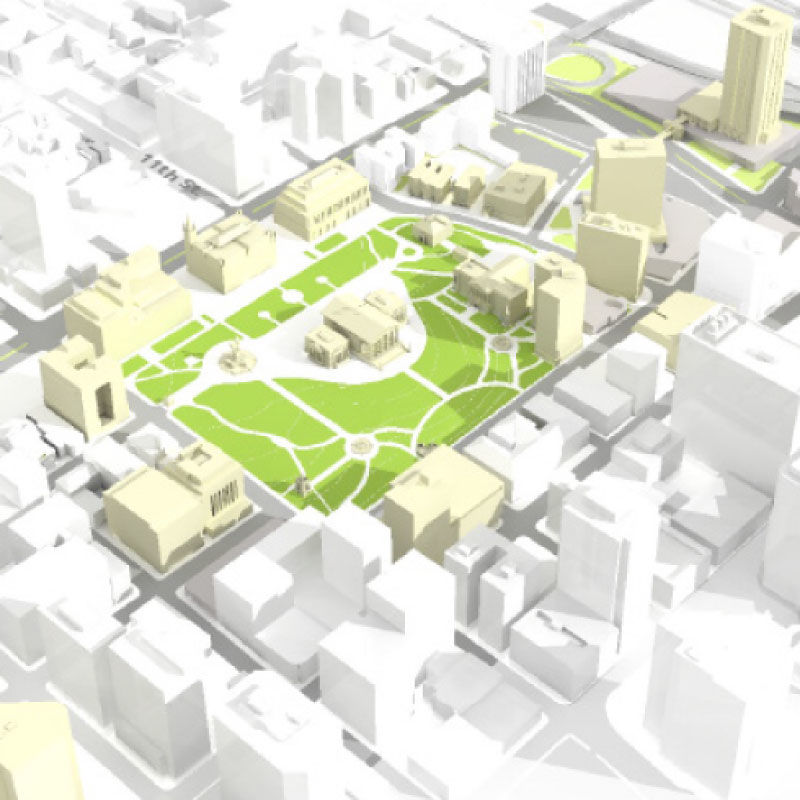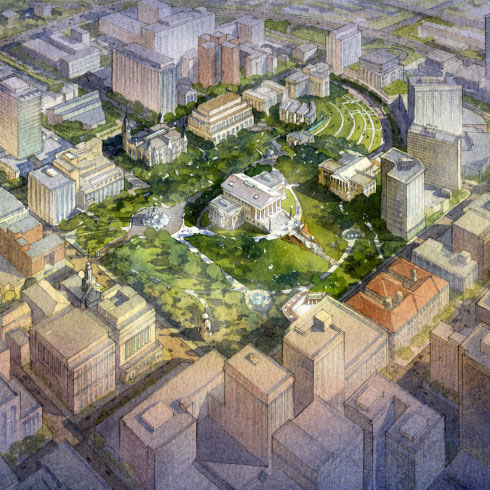Portland-based non-profit, the Portland Sustainability Institute (PoSI), has focused its efforts to develop comprehensive assessment tools and public policy support for EcoDistricts, an initiative that targets sustainability goals and strategies at the neighborhood scale, integrating building and infrastructure projects. PoSI is implementing the EcoDistricts Initiative in close partnership with the City of Portland in five different neighborhood districts within Portland.
On the East Cost, the National Capital Planning Commission in Washington D.C. has been working on a similar district scale effort for the Southwest EcoDistrict that includes multiple federal buildings, public space and related infrastructure. This Ecodistrict is planned to function as an “environmentally low-impact unit” with a larger goal of becoming carbon neutral. Beyond achieving energy efficiency for buildings, the effort focuses on sustainability at a wider scale and builds on the Executive Order 13514 requiring all federal agencies to measure, manage and reduce greenhouse gas emissions.
WRT’s work with state capitol districts such as the Virginia State Capitol Master Plan and the Illinois State Capitol Master Plan outlines district scale sustainability strategies that take advantage of efficiencies gained by integrating multiple state owned buildings and their systems’ need for water, waste, energy, parking and transportation, to reduce demand. These campus scale strategies help advance ongoing state-wide sustainability efforts.

